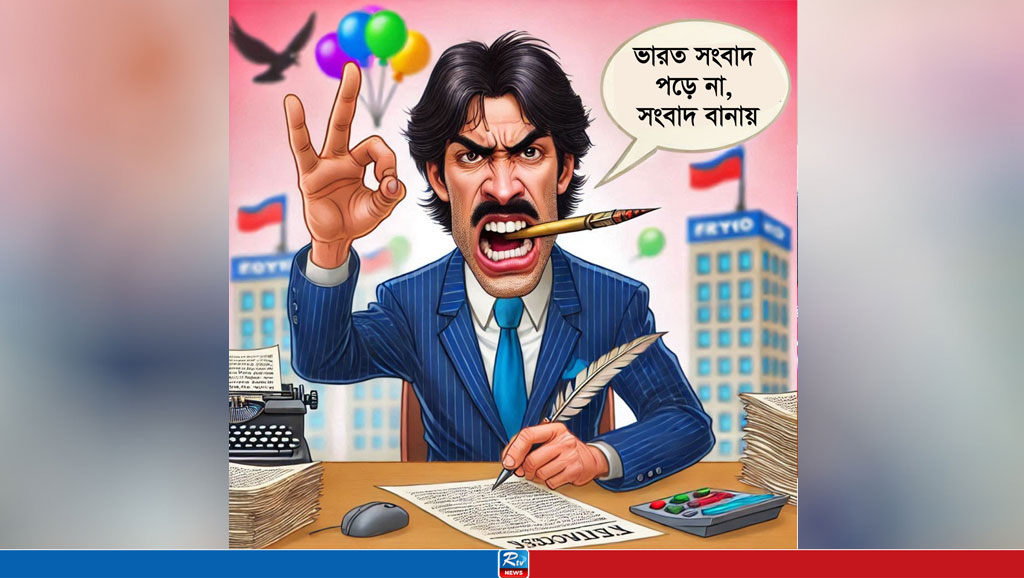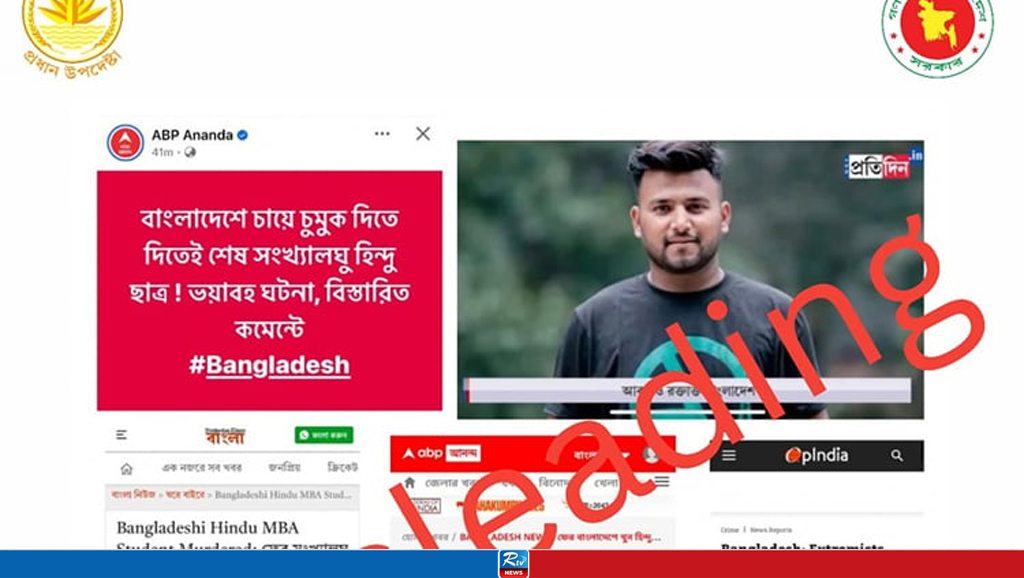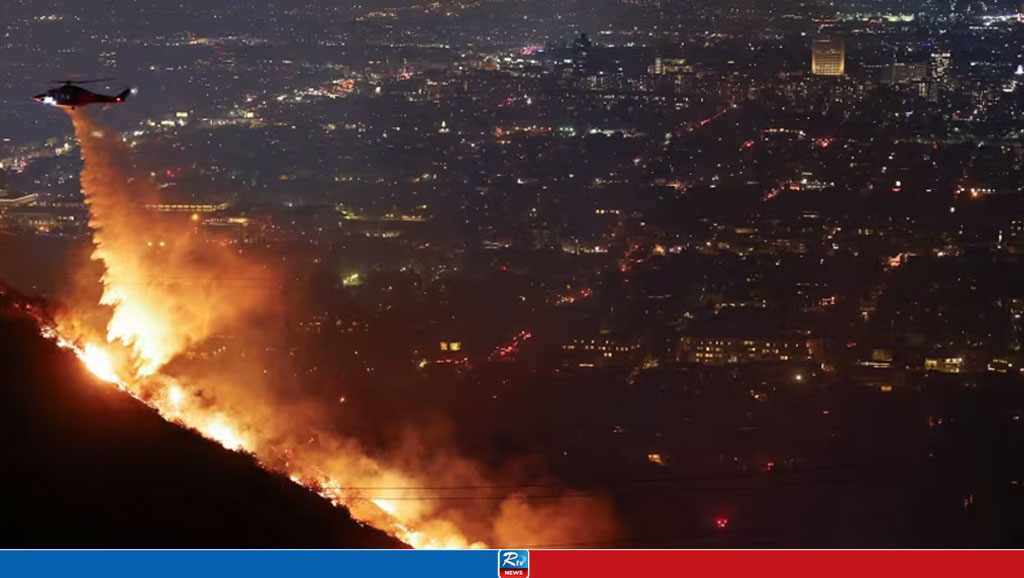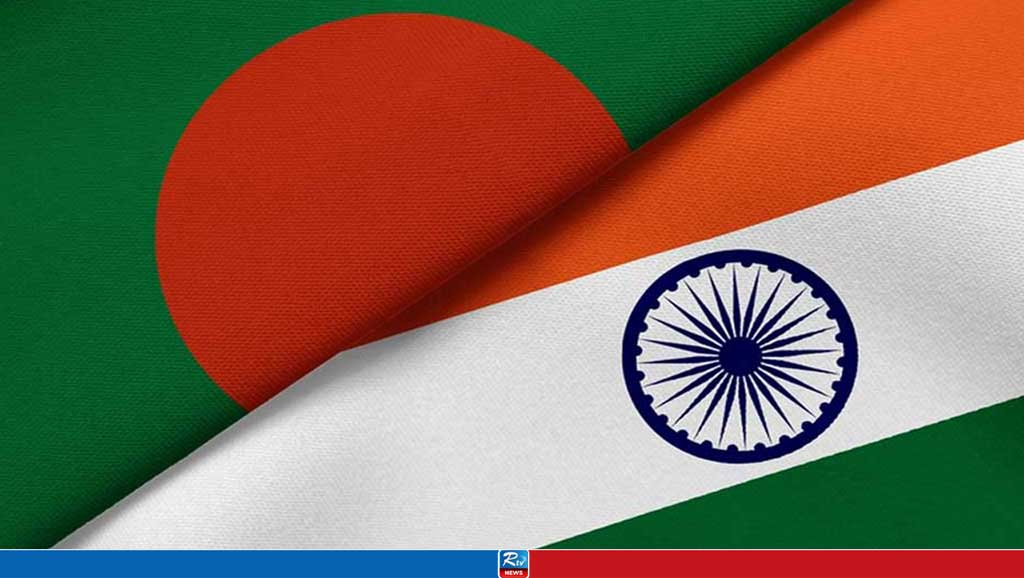Indian Media Spreads Best Fairy Tales

Horses flying in the sky, dogs and goats speaking like humans, or a giant swallowing a person whole—these phrases are easy to identify as elements of fairy tales. However, would it surprise you if India's mainstream media conveyed similar stories?
It might sound shocking, but for many, it's hardly surprising. Indian journalism has long been a subject of criticism worldwide and has often become fodder for humor on international platforms. There have been instances where journalists act as political party workers, turn news presentations into advertisements or soap operas, or become overly emotional while delivering reports. Such conduct is unacceptable in international journalism, yet Indian media continues to defy these norms.
Recently, Indian media's coverage of Bangladesh has been particularly noteworthy—crafting stories like fairy tales. While these reports may lack coherence or professional finesse, their efforts to captivate an audience are undeniable. Interestingly, these outlets have been remarkably successful, earning thousands of "haha" reactions on social media for their fantastical tales. This demonstrates that even mainstream media can excel at entertaining the masses.
Some researchers offer an alternative perspective on this trend. They argue that these reports are not born out of hatred but rather stem from fear. India has strained relationships with its neighboring countries, and since the fall of the Awami League government in Bangladesh, the latter has grown less inclined to cater to India's interests. This shift has caused concern for India, but it is unlikely to take any direct action against Bangladesh. Instead, Indian media appears to express this apprehension through such exaggerated narratives.
Indian journalism has traditionally been considered the "fourth pillar" of democracy. However, in recent times, its reputation on the global stage has taken a hit. The Reporters Without Borders (RSF) 2023 Press Freedom Index ranked India 161st out of 180 countries. This decline has raised serious concerns internationally about media freedom in India. Increasing instances of threats, arrests, and legal pressures on journalists have become significant barriers to independent journalism, often forcing them into biased reporting.
Reports by organizations like BBC and Al Jazeera suggest that Indian journalism is increasingly leaning towards a specific political agenda. Particularly, the media's role in suppressing dissenting voices and favoring the ruling party's narratives has come under scrutiny.
In the age of social media and the internet, fake news has become rampant. Indian media houses have occasionally been identified as sources or promoters of such disinformation, further eroding trust in Indian journalism globally.
Moreover, Indian media has faced accusations of biased coverage, especially regarding minority communities and sensitive issues. Human rights organizations have expressed concerns about this trend. For instance, the media's handling of the Kashmir issue in 2019 attracted significant international criticism, and similar patterns have emerged in its recent reporting on Bangladesh.
Author: Online Activist
Comments
Shock as China Vice-principal’s Affair with Ex-pupil Exposed amid US$96,000 Loan Row

Bangladesh’s Fragile Progress Toward Freedom of Expression


 Live Tv
Live Tv




